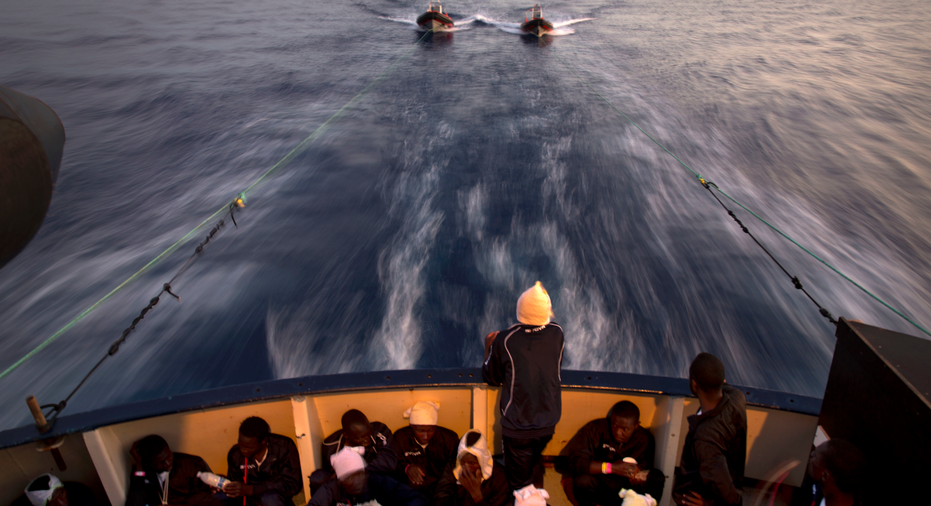EU leaders boost support for Libya to halt migrant exodus

BRUSSELS – European Union leaders pledged Friday to boost their support for conflict-ravaged Libya as the number of people fleeing Africa on crowded, unsafe boats for better lives in Europe continues to rise.
European Council President Donald Tusk said the central Mediterranean Sea route to Italy for unauthorized migrants "remains critical in terms of irregular arrivals."
"While it is true that we are taking many of the right steps, the only result that really matters to us is to put a definitive end to this tragic situation," Tusk said on the second day of two-day EU summit in Brussels,.
To help prevent people from setting out for Europe in unseaworthy boats, the leaders committed to step up their backing of the Libyan coast guard by providing more training and equipment.
The United Nation's migration agency estimates that around 70,000 people have arrived in Italy from Libya so far this year, compared with around 56,000 during the same period last year. Almost 1,900 have died trying to make the perilous Mediterranean crossing in 2017.
"Loss of life and continuing migratory flows of primarily economic migrants on the Central Mediterranean route is a structural challenge and remains an issue of urgent and serious concern," the leaders said in their final summit statement.
"The EU and its member states will have to restore control to avoid a worsening humanitarian crisis."
But human rights group Amnesty International says Libya's coast guard is returning the people it plucks from the sea to a country where they face detention and possibly torture or rape.
EU leaders "are increasing the capacity of the Libyan coast guard while turning a blind eye to the inherent, grave, risks of such cooperation," Iverna McGowan, head of Amnesty's European office, said.
Libya is also appealing for help to secure its porous southern border, which is some 4,000 kilometers (2,500) miles long.
The leader of Libya's unity government, Fayez Sarraj, has been in Brussels lobbying the Europeans and the NATO military alliance for help and money.
"As the number of migrants rises, the economic and social fabric of southern Libya is placed under very significant strain," he told reporters on Wednesday.
EU leaders, meanwhile, want to replicate with Libya a migration-deterrence deal it has with Turkey. Despite legal and human rights concerns about the EU-Turkey agreement, it has reduced drastically the number of people crossing the Aegean Sea to Greece.
French President Emmanuel Macron said "the crisis that we are living is not a passing crisis. It's a long-term challenge which will find its response only in the solutions in Africa," notably in "stabilizing the Libyan borders."
But Amnesty's McGowan warned that "EU leaders need to urgently stop externalizing border control and asylum processing to foreign governments - including some with appalling human rights records."



















